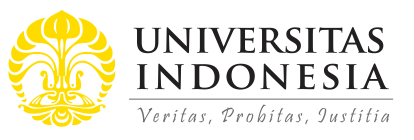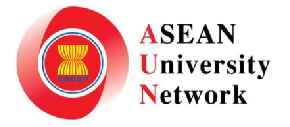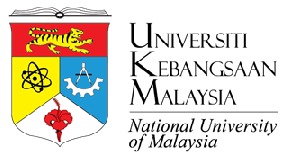
Abstract
Low-income economies are experiencing potential serious threats in terms of long-term sustainability and social development. At the same time, most developing economies are grappling with possible disruptions from the Fourth Industrial Revolution and the current COVID-19 pandemic and its economic consequences. However, every economy has the same goal of elevating its status to that of a developed country. This research uses the narrative/case study approach to examine cross-border development and the role that universities can play as important actors in the development of society. Moreover, this research combines observations and literature analysis. Universities are clearly best placed to play an important role in helping the development of a country and assisting less-developed neighboring countries. However, this role will require continuous long-term commitment. In numerous cases, universities must make significant internal changes to meet the challenges posed by the Fourth Industrial Revolution. Three issues are identified as priority areas to be addressed: the quality of higher education, complex government bureaucracies, and ineffective on-the-job training. These issues will require universities to provide high-quality offerings that are relevant to their community and the broad world market. Moreover, universities must improve the foreign language skills of students and staff to enable them to communicate and learn from worldwide developments. Finally, universities should be proactive in creating opportunities rather than reactive and waiting for others to provide them with opportunities.
References
AUN. (2016). Managing multi-university collaboration activities: The AUN way version 1.0 2016. Bangkok: ASEAN University Network (AUN).
AUN. (2019). ASEAN University Network Annual Report 2018-2019. Bangkok: The ASEAN University Network (AUN) Secretariat.
http://www.aunsec.org/pdf-2019/AUN%20Annual%20Report%202019%20Revise%20Final1.pdf
Brown-Martin, G. (2017). Education and the fourth industrial revolution. Groupe Média TFO. Toronto.
Charter of the ASEAN University Network (1995).
https://www.parliament.go.th/aseanrelated_law/files/file_20170808180642_txtattactEN_.pdf
Dilas, D. B., Cui, J., & Trines, S. (2018, April 3). Education in Nepal. World Education News + Reviews.
https://wenr.wes.org/2018/04/education-in-nepal
Ghimire, B. (2019, March 1). As study abroad numbers rise, Nepali students land in trouble. University World News.
https://www.universityworldnews.com/post.php?story=20190301101826555
Hüther, O., Kosmützky, A., Asanov, I., Bünstorf, G., & Krücken, G. (2020). Massive open online courses after the gold rush: International and national developments and future perspectives. Kassel: International Centre for Higher Education Research – Kassel.
Jones, C., & Pimdee, P. (2017). Innovative ideas: Thailand 4.0 and the fourth industrial revolution. Asian International Journal of Social Sciences, 17(1), 4-35.
https://doi.org/10.29139/aijss.20170101
Kosmützky, A., & Putty, R. (2016). Transcending borders and traversing boundaries – A systematic review of the literature on transnational, offshore, cross-border and borderless higher education. Journal of Studies in International Education, 20(1), 8-33.
https://doi.org/10.1177/1028315315604719
Lee, R. M., & Yuan, Y. S. (2018). Innovation eucation in China: Preparing attitudes, approaches, and intellectual environments for life in the automation economy. In N. W. Gleason (Ed.), Higher education in the era of the Fourth Industrial Revolution. Singapore: Palgrave Macmillan.
Legkonogikh, A., Mezinova, G., Popova, S., & Karimova, C. (2019). Development of cross-border education in regional University. SHS Web of Conferences 70(Paper 02007). https://doi.org/10.1051/shsconf/20197002007
Marr, B. (2019, May 13). 14 Essential leadership skills for the 4th Industrial Revolution. Forbes.
Mbah, M. (2019). Can local knowledge make the difference? Rethinking universities’ community engagement and prospect for sustainable community development. The Journal of Environmental Education, 50(1), 11-22.
https://doi.org/10.1080/00958964.2018.1462136
Müller, E. (2018). Regenerative Development in Higher Education: Costa Rica’s Perspective. In N. W. Gleason (Ed.), Higher Education in the Era of the Fourth Industrial Revolution. Singapore: Palgrave Macmillan.
Parks, T., Maramis, L., Sunchindah, A., & Wongwatanakul, W. (2018). ASEAN as the architect for regional development cooperation. San Francisco: The Asia Foundation.
https://asiafoundation.org/publication/asean-as-the-architect-for-regional-development-cooperation/
Phuengpha, N. (2019). Thai bureaucracy system. Jurnal Stisospol Waskita Dharma, 6(1), 11-19. http://ejurnal.waskitadharma.ac.id/index.php/jamak20191/article/viewFile/45/43
Rual, D. (2019, August 2). How to keep Nepali students from flying abroad. Kathmandu Post, 7.
Sharma, S. (2018a, September 11). Expats and experts. myRepublica.
https://myrepublica.nagariknetwork.com/news/expats-and-experts/
Sharma, S. (2018b, October 23). Making education three-dimensional. myRepublica.
https://myrepublica.nagariknetwork.com/news/making-education-three-dimensional/
Sharma, S. (2019, July 25). Localizing knowledge production. myRepublica.
https://myrepublica.nagariknetwork.com/news/localizing-knowledge-production/
Smith, R. B. (2019a). Harmonisation of laws in ASEAN: The issue of English. Paper presented at the International Seminar on Politics, Administration and Development 2019 (INSPAD2019), Walailak University, Nakhon Si Thammarat, Thailand.
https://www.researchgate.net/publication/343178725_CODE_026_HARMONISATION_OF_LAWS_IN_ASEAN_THE_ISSUE_OF_LANGUAGE/references
Smith, R. B. (2019b). Sustainability: Lenders know best - A practitioner’s view. ATINER'S Conference Paper Series.
https://www.atiner.gr/papers/CBC2018-2613.pdf
Smith, R. B. (2020). How can least developed member countries of ASEAN benefit from the 4th Industrial Revolution? Walailak Journal of Science and Technology (WJST), 18(1).
http://wjst.wu.ac.th/index.php/wjst/article/view/6502
Smith, R. B., Smith, N. N., & Smith, D. R. (2014). Law, bureaucracy and electric power from renewable energy in Thailand. Southeast Asian Journal of Contemporary Business, Economics & Law, 5(4), 1-5.
Teanravisitsagool, P. (2019). Thailand 4.0: The Fourth Industrial Revolution Strategy from the National Perspective. Paper presented at the Special Session on the Fourth Industrial Revolution in ASEAN, Bangkok.
https://drive.google.com/drive/u/0/folders/1y3Cxh6pP2kpSFTR-3crmY9uWIetQhe7r
Tijaja, J. (2019). Assessment of ASEAN Readiness for the Fourth Industrial Revolution. Paper presented at the Special Session on the Fourth Industrial Revolution in ASEAN, Bangkok.
https://drive.google.com/drive/u/0/folders/1y3Cxh6pP2kpSFTR-3crmY9uWIetQhe7r
Tyson, L. S., & Vega, V. W. (2019). Why we need to talk about lifelong learning and intercultural universities. London Review of Education, 17(3), 347-361.
https://doi.org/10.18546/LRE.17.3.10
UNDP. (2019). Human Development Report 2019. New York: United Nations Development Programme.
http://hdr.undp.org/sites/default/files/hdr2019.pdf
Upadhyay, J. P. (2018). Higher Education in Nepal. Pravaha, 24(1), 96-108.
https://doi.org/10.3126/pravaha.v24i1.20229
van den Broek, J., Benneworth, P., & Rutten, R. (2019). Institutionalization of cross-border regional innovation systems: the role of university institutional entrepreneurs. Regional Studies, Regional Science, 6(1), 55-69.
https://rsa.tandfonline.com/doi/pdf/10.1080/21681376.2018.1562367?needAccess=true
Wagle, A. (2019, July 23). The collapse of Nepal's higher education system. Kathmandu Post.
https://kathmandupost.com/columns/2019/07/23/the-collapse-of-nepal-s-higher-education-system
Wickramasinghe, V. (2018). Higher education in state universities in Sri Lanka: Review of higher education since colonial past through international funding for development. International Journal of Educational Management, 32(3), 463-478.
https://doi.org/10.1108/IJEM-01-2017-0028
Xing, B., & Marwala, T. (2017). Implications of the fourth industrial age for higher education. The Thinker, 73, 10-15.
Recommended Citation
Smith, Robert Brian and Smith, Nucharee Nuchkoom
(2020).
Cross-border development: A long-term role for Universities.
ASEAN Journal of Community Engagement, 4(1).
Available at: https://doi.org/10.7454/ajce.v4i1.1077
Included in
Adult and Continuing Education Commons, Adult and Continuing Education Administration Commons, Civil and Environmental Engineering Commons, Curriculum and Instruction Commons, Educational Leadership Commons, Higher Education Administration Commons, Scholarship of Teaching and Learning Commons, University Extension Commons, Vocational Education Commons







